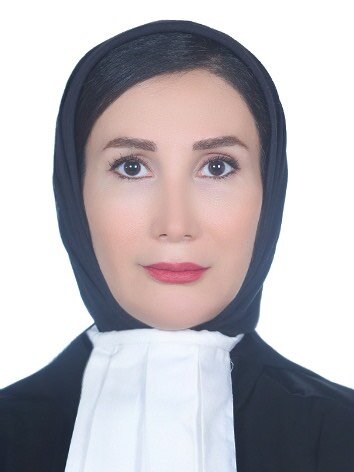Best Citizenship Lawyers in Tehran
Share your needs with us, get contacted by law firms.
Free. Takes 2 min.
List of the best lawyers in Tehran, Iran
About Citizenship Law in Tehran, Iran
Citizenship law in Tehran, Iran is governed by the country's overarching legislative framework, which determines who is recognized as a citizen. The laws are based on principles of jus sanguinis (right of blood), meaning that citizenship is primarily acquired through parentage. In certain situations, it is possible to acquire citizenship through naturalization or other special provisions, but these are generally stricter compared to many Western countries. Understanding the intricacies of these laws is crucial for anyone seeking citizenship or navigating related legal matters in Tehran.
Why You May Need a Lawyer
Seeking legal assistance in citizenship matters can be essential for several reasons. Individuals often require guidance when they are attempting to obtain Iranian citizenship through naturalization, encountering issues in proving their citizenship status, or dealing with matters related to dual nationality. Additionally, expatriates, refugees, or those with complex family ties may find legal processes intricate and challenging to navigate without professional help. Lawyers who specialize in citizenship can provide clarity, ensure compliance with local laws, handle necessary paperwork, and represent their clients in legal proceedings if disputes arise.
Local Laws Overview
The key laws regarding citizenship in Tehran include the Nationality Law of 1929 and its various amendments. Key points consider citizenship by descent, the conditions under which foreigners can become naturalized citizens, and regulations regarding renouncement or forfeiture of Iranian citizenship. It is important to understand that dual citizenship is not generally recognized in Iran, which can have significant implications for individuals who hold or are seeking citizenship in another country simultaneously. Marriage laws also impact citizenship, especially concerning foreign spouses.
Frequently Asked Questions
What is the primary method of acquiring Iranian citizenship?
In Iran, the primary method of obtaining citizenship is through parentage; individuals are considered Iranian citizens if their father is Iranian.
Can foreigners obtain Iranian citizenship?
Yes, foreigners can apply for Iranian citizenship through naturalization, but the process is stringent, often requiring proof of residency over an extended period and fluency in Persian.
Does marrying an Iranian citizen automatically confer citizenship?
No, marrying an Iranian citizen doesn’t automatically grant citizenship. However, foreign spouses can apply for naturalization under specific conditions.
Is dual citizenship allowed in Iran?
Iran generally does not recognize dual citizenship. Iranian citizens who acquire another nationality face the risk of rights restrictions within Iran.
How does citizenship affect residency rights and legal protection?
Citizenship grants individuals full residency rights, including the right to live, work, and receive education, as well as legal protection under Iranian law.
What documents are needed to apply for citizenship?
The required documents include personal identification, proof of residency, marriage certificates (if applicable), and proofs of parents’ Iranian citizenship, aside from specific forms required by local authorities.
Can children born in Iran to foreign parents acquire citizenship?
Children born in Iran to foreign parents are not automatically entitled to Iranian citizenship. Specific conditions must be met, such as the permanent residency of the parents.
How can an Iranian citizen renounce their citizenship?
Renouncing Iranian citizenship can be a complex legal process, often needing permission from the council of ministers and requiring the individual to demonstrate the acquisition of another nationality.
What should I do if I encounter legal trouble regarding my citizenship status?
It is advisable to consult with a lawyer specializing in citizenship issues who can provide guidance and representation in resolving legal disputes.
Is there a possibility of losing Iranian citizenship?
Certain actions, like serving in a foreign military, might lead to the loss of Iranian citizenship, subject to specific legal reviews and approvals by local authorities.
Additional Resources
For further assistance, individuals can reach out to the Iranian Ministry of Foreign Affairs or local embassies for expatriates. Legal aid organizations and consultation services in Tehran can also provide valuable resources and information.
Next Steps
If you need legal assistance in matters of citizenship, the first step is to gather and organize all relevant documentation. Then, consult a qualified attorney specializing in Iranian citizenship law. They can help you understand your legal position, advise on the best course of action, and assist with navigating any bureaucratic processes involved in resolving your issues effectively.
Lawzana helps you find the best lawyers and law firms in Tehran through a curated and pre-screened list of qualified legal professionals. Our platform offers rankings and detailed profiles of attorneys and law firms, allowing you to compare based on practice areas, including Citizenship, experience, and client feedback.
Each profile includes a description of the firm's areas of practice, client reviews, team members and partners, year of establishment, spoken languages, office locations, contact information, social media presence, and any published articles or resources. Most firms on our platform speak English and are experienced in both local and international legal matters.
Get a quote from top-rated law firms in Tehran, Iran — quickly, securely, and without unnecessary hassle.
Disclaimer:
The information provided on this page is for general informational purposes only and does not constitute legal advice. While we strive to ensure the accuracy and relevance of the content, legal information may change over time, and interpretations of the law can vary. You should always consult with a qualified legal professional for advice specific to your situation.
We disclaim all liability for actions taken or not taken based on the content of this page. If you believe any information is incorrect or outdated, please contact us, and we will review and update it where appropriate.












